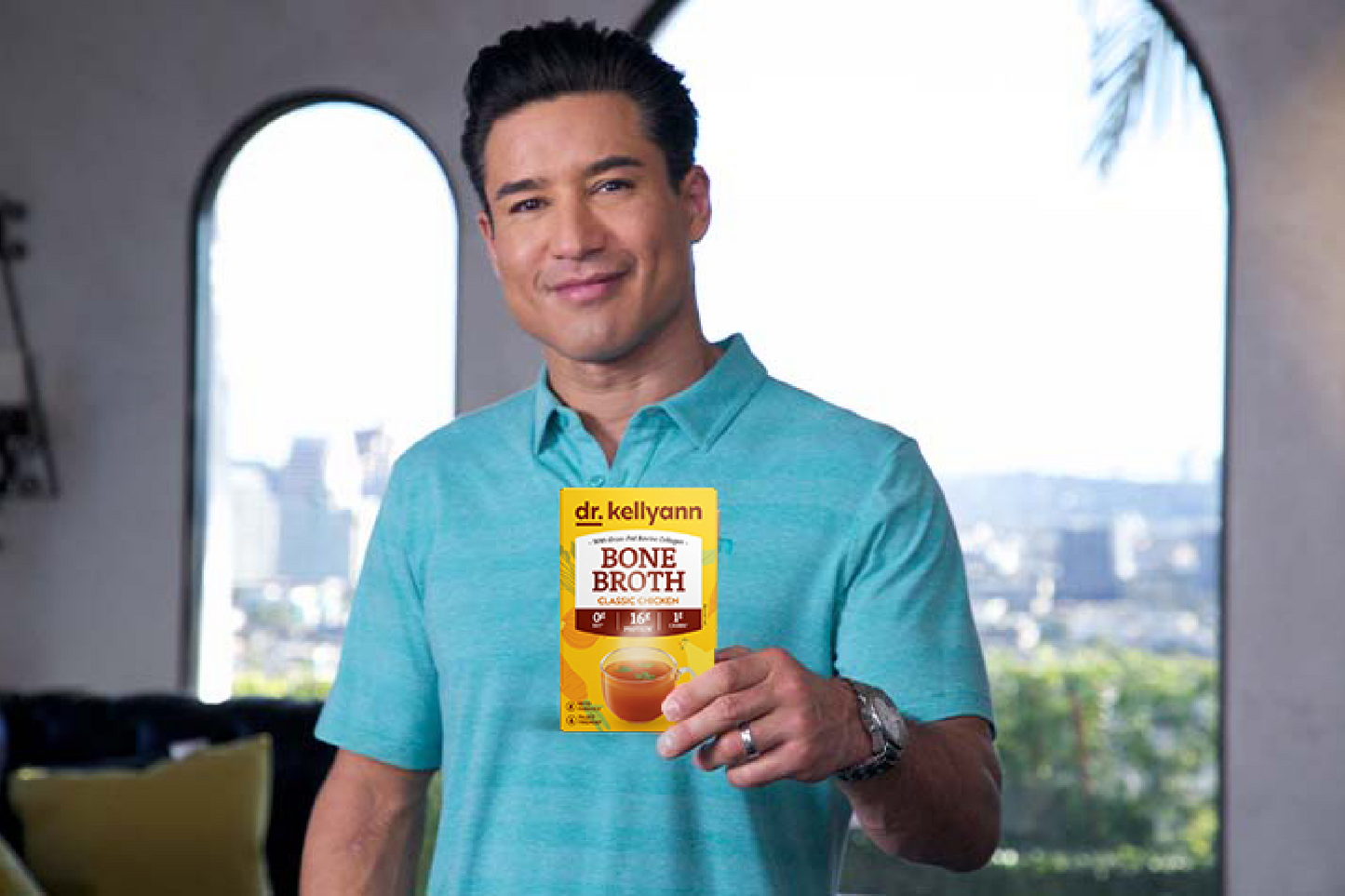
What Are Refined Carbs? Everything You Need To Know
Navigating the world of nutrition can often feel like navigating a minefield, especially when it comes to understanding carbs. There's a lot of buzz around refined carbohydrates, but what are they really? And more importantly, how do they impact your health?
Wondering about the contrast between refined carbs and their healthier counterparts — complex carbohydrates — and how you can create healthier choices without compromising taste or satisfaction? Well, grab your fork because we are about to dig in.
What Are Refined Carbs?
Refined carbs, or simple carbs, are foods where the natural fibers have been stripped away during processing, leaving only simple sugars behind. These refined carbs love to hide out in processed foods.
These include:
- White bread
- Pasta
- Pastries
- Sugary drinks like fruit juice or soda
- Snacks
But here's the thing: not all carbs are created equal. There's a world of difference between a bowl of quinoa and a slice of white bread. The key to understanding this lies in the processing.
You see, during the refining process, many of the essential nutrients and fibers are removed from the grain. This process gives the grain a finer texture and extends its shelf life, but it also strips away dietary fiber, iron, and many B vitamins. So, what you end up with is a food product that is high in calories but low in nutrient density.
What’s the Difference Between Refined and Complex Carbs?
This brings us to an important distinction: the difference between refined carbs and complex carbs.
While refined carbs give you a quick energy boost followed by a crash and can lead to mood swings, complex carbs are recommended by nutritionists and dietitians as a way to boost energy and provide health benefits.
Complex carbs are the good guys in this story. They're found in foods like whole grains, beans, legumes, lentils, fruits, and vegetables.
These carbs are high in fiber and are digested slowly, leading to a steady release of energy. This slow and steady release can help encourage healthy blood sugar levels, keep you feeling full for longer, and fuel your body throughout the day.
How Do Refined Carbs Impact Your Health?
Unraveling the impact of refined carbs on your health is like peeling an onion; there are many layers to consider. Refined carbohydrates can subtly influence your body's function and overall well-being in a multitude of ways. Let's take a deeper dive into four key ways that these carbs can affect your health.
They’re Calorie-Dense
First up, let's talk about calorie density. This term refers to foods that pack a lot of calories into a small package.
Think about a slice of white bread or a serving of pasta. They're not particularly large or filling, but they contribute a significant number of calories to your daily intake, and overconsumption of these foods can lead to health issues like obesity.
Unfortunately, these calorie-dense foods don't provide an equal trade-off in terms of nutritional value. They might quench your hunger momentarily, but they lack a diversified nutrient profile. Research has shown that diets high in calorie-dense foods can lead to weight gain and related health issues over time.
They Have a High Glycemic Index
Next, we need to discuss the glycemic index (GI). The GI is a ranking of carbohydrates on a scale from 0 to 100, according to the extent to which they raise blood sugar levels after eating. Foods with a high GI are rapidly digested and absorbed, resulting in marked fluctuations in blood sugar levels.
Refined carbs tend to have a high GI, as they lead to the rapid absorption of glucose in your bloodstream, followed by a sharp drop. This roller coaster of blood sugar levels can lead to feelings of energy crashes and hunger, not to mention long-term health effects.
They’re Low in Nutrients
Another issue with refined carbs? Their lack of nutrients. During the refining process, many of the naturally occurring nutrients are removed. For instance, when whole grains are refined into white flour, they lose their natural fiber, vitamins, and minerals.
These foods then become what is often termed "empty calories." They contribute to your daily energy intake without offering a substantial amount of vitamins, minerals, or other beneficial compounds that your body needs to function optimally. Over time, a diet high in these nutrient-poor foods can lead to deficiencies and related health concerns.
They’re Usually Lower in Fiber
Last but not least, refined carbs are usually lower in fiber. Though most carbs are broken down into sugar molecules, fiber can't be broken down into sugar molecules — instead, it passes through the body undigested.
Fiber can help regulate the body's use of sugars, supporting healthy hunger and blood sugar levels. Fiber can help with digestion, aid in weight loss, and can even support long-term health. But refined carbs often lose much of their fiber during the refining process, making you feel less full and satisfied after eating.
Researchers have observed that increasing dietary fiber intake can have a significant impact on overall health and wellness. High-fiber foods, often rich in vitamins and minerals, can support your body's metabolic function, maintain healthy digestion, and contribute to your overall feeling of well-being. This suggests the crucial role that fiber-rich foods can play in promoting and maintaining your health.
Now that we're well-versed in the ins and outs of refined carbs and their effects on our health, let's put our culinary knowledge to use and identify these culprits in our daily meals.
What Are Some Examples of Refined Carbs?
Let's dive into identifying the refined carbs, those crafty agents that subtly sneak into our diets.
- White bread and bagels: These are classic breakfast staples, yet they’re stripped of their natural fiber and nutrients during the refining process, leaving them lacking in whole-grain goodness.
- White rice: Used in various dishes, white rice also undergoes refining, removing its nutrient-rich outer layers and resulting in a less nutritious, starchier grain.
- Pastries: Irresistible with their flaky crusts and sweet fillings, pastries are often made with refined wheat flour and added sugars — such as high fructose corn syrup —making them less than ideal for health.
- Sugarybreakfast cereals: Breakfast's secret saboteur, many popular cereals are brimming with refined grains and added sugars.
- Sodas and sweetened beverages: These refreshing temptations often contain high amounts of added sugars and offer virtually no nutritional value, making them prime sources of refined carbs.
- Packaged snacks: Beware of these on-the-go bites like chips, pretzels, and crackers, as they're usually made with refined flour, added sugars, unhealthy fats, and high sodium.
Remember, awareness is your superpower in maintaining your well-being. One of the first steps to overall wellness is simply being mindful of refined carb content and exploring healthier alternatives.
What Are Some Alternatives to Refined Carbs?
Embracing a healthier diet doesn't mean you're stuck with bland and boring foods. In fact, by trading refined carbs with whole foods, you can enjoy a flavorful culinary adventure that's not just delicious but nutritious as well. Let's explore some alternatives to refined carbs.
Non-Starchy Vegetables
At the top of your healthy eating list should be non-starchy vegetables. Not only are these vibrant foods low in carbs, but they're also packed with fiber, vitamins, minerals, and antioxidants. From leafy greens like spinach to crunchy favorites like broccoli and bell peppers, a trip to the grocery store can open up a world of exciting options.
And to enhance the flavor of these vegetables, you can pair them with our Miso Mushroom Bone Broth. This savory broth not only lends a delightful umami taste to your dishes but also provides a wealth of nutrients that support immune function and overall wellness.
Nuts
Nuts have gotten a bad rap due to their high fat content, but these are good fats that your body needs. They're packed with protein, fiber, and a host of essential vitamins and minerals, such as magnesium, making them a wonderful alternative to refined carbs.
They can even support heart health while keeping us feeling full and energized. Almonds, walnuts, cashews, and pistachios can all be enjoyed as a standalone snack or sprinkled over salads for added texture and flavor.
And if you're craving something sweet, why not try our Chocolate Almond Shake? This collagen shake not only satisfies your sweet tooth but can also provide a hearty dose of protein and collagen to support your hair, skin, nails, and joints.
Whole Grains
Whole grains have long been considered 'good carbs.’ Unlike their refined counterparts, these starches are rich in fiber, antioxidants, and complex carbohydrates, providing sustained energy without the blood sugar spike. Quinoa, brown rice, oats, and whole wheat bread are just some examples of whole grains that you can enjoy.
For instance, you can whip up a colorful quinoa salad with roasted vegetables, prepare a nourishing bowl of oatmeal topped with fresh fruits and nuts, or enjoy a hearty slice of whole-grain bread as the foundation for your favorite sandwich.
The Bottom Line
Remember, healthy eating doesn't equate to sacrificing flavor and satisfaction. By creatively swapping out simple carbohydrates for delicious healthy foods like non-starchy vegetables, nutritious nuts, and wholesome whole grains, we can not only indulge our taste buds but also nourish our bodies with essential nutrients.
The journey to wellness is about balance and enjoyment as much as it is about nourishment. Dr. Kellyann offers a variety of thoughtfully crafted products to help make healthy eating not just convenient but also delightful. These products serve as companions in our wellness journey, empowering us to make healthier choices while enjoying every bite.
So, as you continue on your path to wellness, embrace and celebrate the fusion of health and taste. Start making nourishing choices today, and step confidently towards a healthier, happier life.
Want to learn more about how you can take control of your health and wellness? Discover more of our blog or check out our collection of healthy and delightful Dr. Kellyann products you can incorporate into your daily routine.
Sources:
Glycemic index for 60+ foods | Harvard Health
The Health Benefits of Dietary Fibre | PMC
Antioxidants | Harvard T.H. Chan School of Public Health
Nuts and your heart: Eating nuts for heart health | Mayo Clinic







